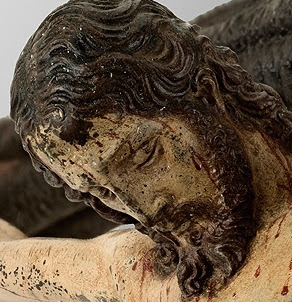As
we celebrate these two saints, perhaps they smile a bit sheepishly, their heads
lowered, embarrassed by all the hoopla and pointing quietly to the wounded
Jesus. “It’s not about us,” they say. “It’s all about what his tender mercy
could accomplish in us.” Peter and Paul ultimately know themselves as forgiven
failures, mercied and transformed by Christ in his most compassionate attentiveness.
Certainly both of them would admit to us that they could be a bit overconfident,
too self-assured; they come to us this morning with nothing to boast about.
Peter
says he’s ready to die with Jesus; then betrays him in a heartbeat to save his
skin. “Wait a minute; you’re one of that Galilean’s followers,” says the maid
in the high priest’s courtyard. “I’d know that accent anywhere.” “Get out of
here,” Peter mutters. “I don’t know who you’re talking about,” Meanwhile Jesus is right
next door being slapped and humiliated.
Paul
so sure of himself, so sure of the truth, so well-schooled in the Law, it’s the
armored tank he’s been using to mow down followers of Jesus the blasphemer. As
Peter crashes into self-knowledge making Jesus’ prediction of betrayal come
true; Paul is knocked off his horse, insisting that he does not even know who
Jesus is. Jesus assures him, “I am Jesus, the one you’ve been persecuting.”
Jesus
did not give up on Peter or Paul, and he won’t give up on us. He is a relentless
rescuer, the God who saves us, even chases after us. He rescues us from all our distress over and over again,
because he loves us. And even when we are dead in our stubborn sinfulness; he
brings us to life,
not because of our
virtuous deeds but because of his tender mercy. All is grace, absolute gift. We do
not feel humiliated, but rescued, and restored, transformed.*
*Last words from Dives in Misericordia, John Paul II, Ch. 4.












